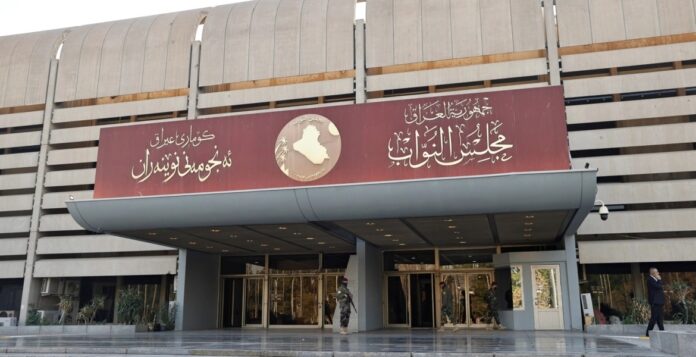Sayyid Muqtada Al-Sadr launched a speech on May 15, 2022, in which he revealed the failure of the attempt to form a majority government. The Sadrist project, included the Sovereignty coalition (also known as Al-Siyada coalition) representing the Sunni component, alongside the Kurdistan Democratic Party representing the Kurdish component.
Al-Sadr said in his televised speech: (By God, I was not surprised even an iota of the obstructing third, and its obstruction to form a majority government, those who belong to it do not exist without authority).
This happened a day after the Federal Court issued a decision canceling the Emergency Support Law for Food Security and Development, claiming that the caretaker government is transforming from a government with full powers to a government with limited powers. Under the resigned government – excluded from the original – which is the exercise of all its powers, and it has a license to dispose of everything that falls under the requirements of the state’s sustainability and continuity, that is the inability of the caretaker government to send any project, law or budget. The Sadrists and their allies relied on this law, and perhaps behind the insistence on passing it lies a message that the majority government is in control of legislative decisions, and by allocating money to the executive government. The response of the Federal Court came with the same decision that states: “The Cabinet is considered resigned, and it continues to conduct daily matters that include taking decisions and actions that will continue the functioning of public utilities. It does not include proposing draft laws, contracting loans, appointing or exempting senior positions in the state, or restructuring ministries and departments.”
The decision disrupted the last path of threatening wielded by the heads of the majority project against delaying the formation. Because of the need for two-thirds of the parliament to elect the president of the republic, which was hindered by the lack of the required number, it is possible that the alternative would be to keep the current government supported by the Sadrists and their allies and provide it with financial cover, with the possibility of changing a number of ministries through Parliamentary Interrogation. However, the court’s decision shows that the members of the current government cannot be held accountable or dismissed; For not being formed by the current parliament.
The majority government (with its presented model) faces great challenges and questions, perhaps the most important of which is that it represents a shock to those who are familiar with the formation of successive governments regardless of their parliamentary presence, as the political presence was the most important in the formation. Rather, what prompted the claimants to claim it now, after 19 years of a consensus that they were a part of?
It faces a fundamental question about the possibility of overcoming the talk about the components, and their representation in authority.
Is what’s presented today the majority in its political sense, or is it a majority with the taste of the consensus of components? Because the majority in democratic discourse is numerical and has nothing to do with component distribution.
As the political majority – in the political sense – is a political party or alliance obtaining the largest number of votes compared to its competitors – each separately -, in this case, we are talking about a relative or simple majority.
The absolute majority in the parliamentary system means a political party or alliance to obtain the privilege of exclusively forming the government, without the need to conclude alliances that usually dictate some concessions that may have devastating effects in the medium and long term.
However, the Federal Court’s interpretation of Constitutional Article No.76 of the 2010 Constitution is that the largest bloc is formed within Parliament, and not necessarily the winner of the elections. And its interpretation in 2022 is that the election of the President of the Republic requires a quorum of two-thirds of the members of the Council of Representatives, and not from those present, which made the possibility of obtaining the majority comfortably a bit of a fantasy. The benefits of having a majority by not having the concessions dictated by making alliances still exist, with talk of a majority.
Which can be considered a strong response to the success of the desired majority that wants to stay away from quotas. These two interpretations were not the only reason for the existence of alliances that require concessions. The so-called “component balance” is a norm that cannot be bypassed, and even the majority’s promoters were not able to transcend it due to internal pressures reminiscent of the context of several events, and the constant fear of the various parties of components’ marginalization.












